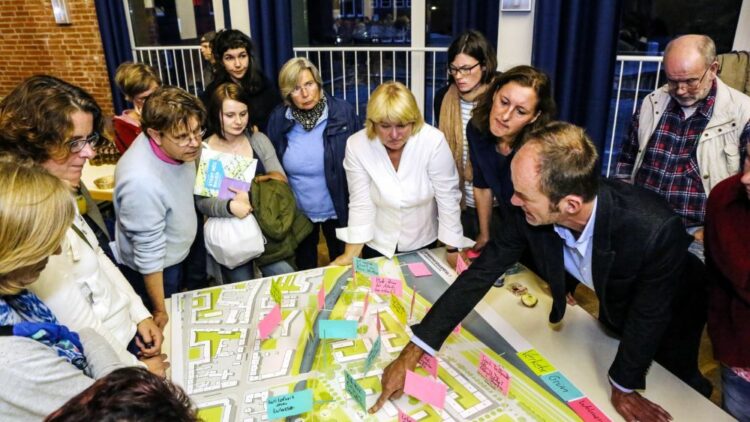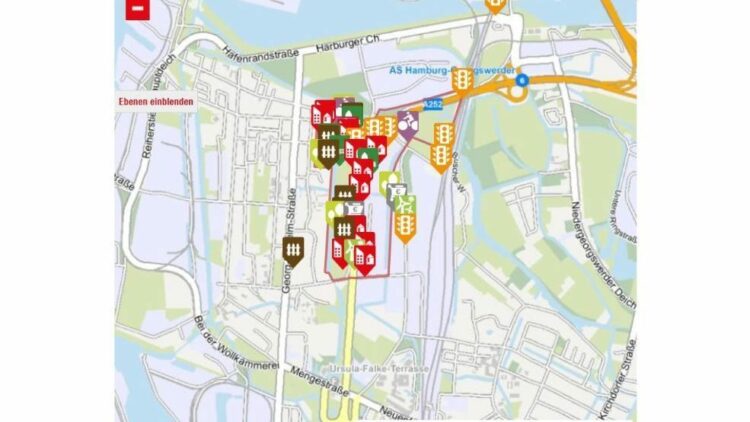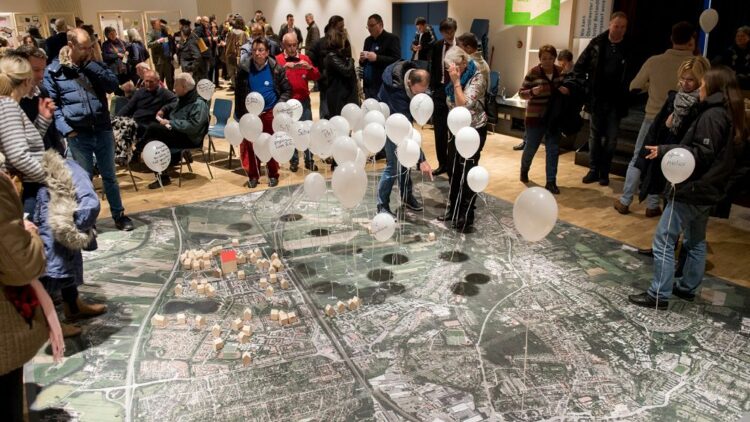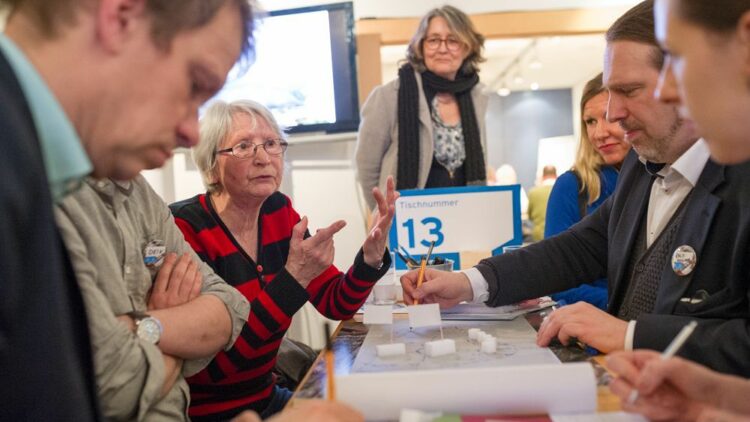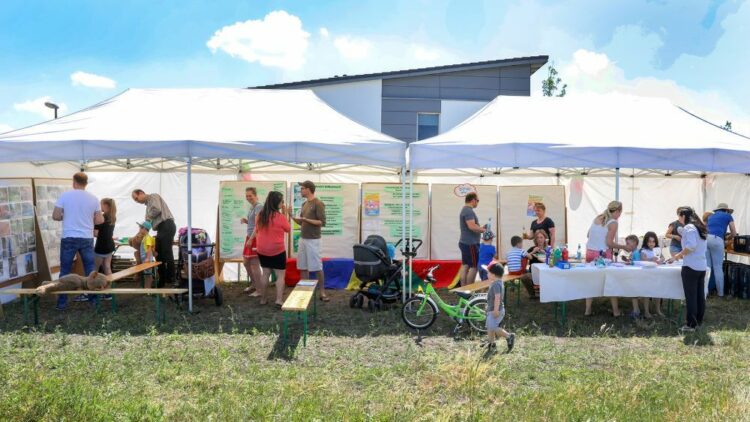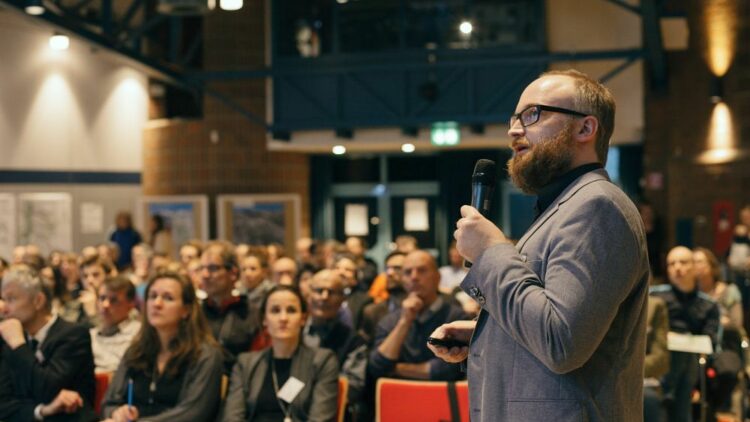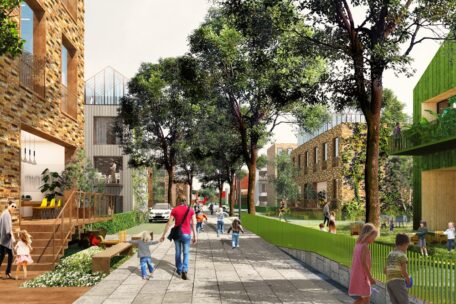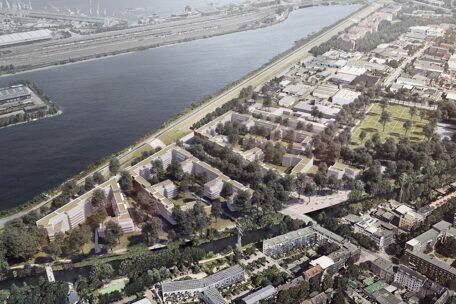Participation
In the course of complex urban development processes, comprehensive informing and participation of citizens, plot owners, local stakeholders, initiatives, chambers and associations, future investors and owners are important and expedient. Valuable local knowledge from residents, ideas, wishes and needs of the various interest groups and constructive criticism support a high-quality, future-proof and sustainable form of district development.
The IBA Hamburg wants to invite the public to collaborate and participate throughout the entire planning process. To do so, it develops formats that reach out to as many target groups as possible and support the entire development process from master planning to designing a playground. From the very start, the level of influence is clearly communicated so that all participants know where there is room for change and where specialist or political decisions have already been taken.
In order for there to be such transparent participation on a level playing field you need open processes, space for creativity, suggestions and change, such as the competitive dialogue on Oberbillwerder or the workshop process for the Spreehafenviertel (Spreehafen District).
Participation opportunities through public participation in urban land-use planning
Public participation in urban land-use planning (the so-called development plan) is regulated in the Federal Building Code. IBA Hamburg is not responsible for the implementation of this legally regulated participation, but always the responsible Hamburg district or, if applicable, a Hamburg authority. Information on current procedures in our project areas is also published on the IBA Hamburg website.
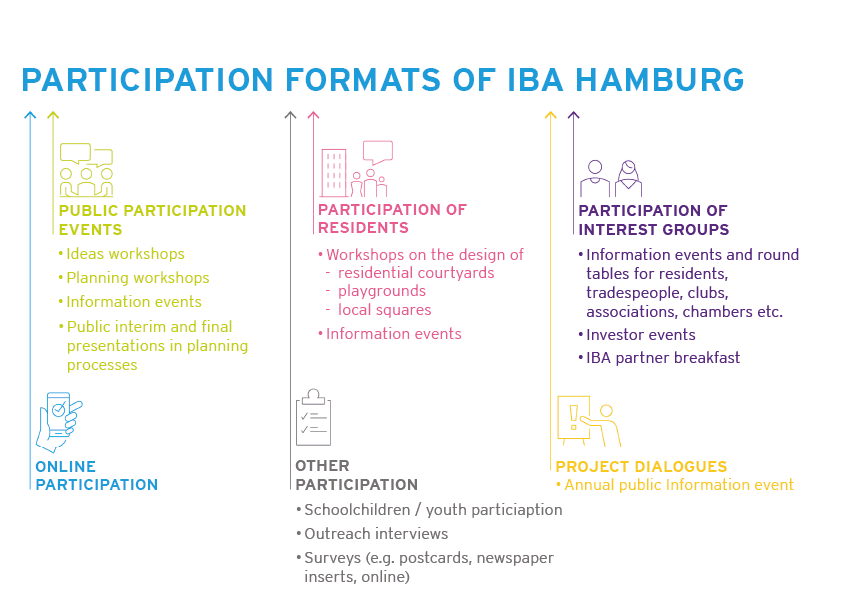
Building a new city together
“I am for the genuine participation of all citizens, interest groups, representatives and associations interested in the development of the city far beyond the minimum number prescribed in law. We have to create an acceptance among the general public for the necessary conversion and extension of the city, explain their relevance, and make the complexity of transparent processes manageable.” (Zeit Online interview)
FRANZ-JOSEF HÖING

